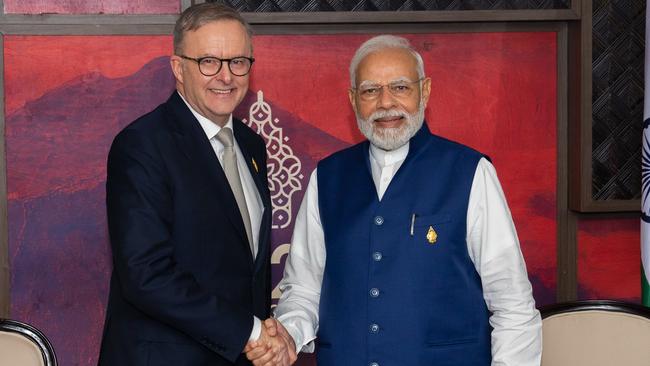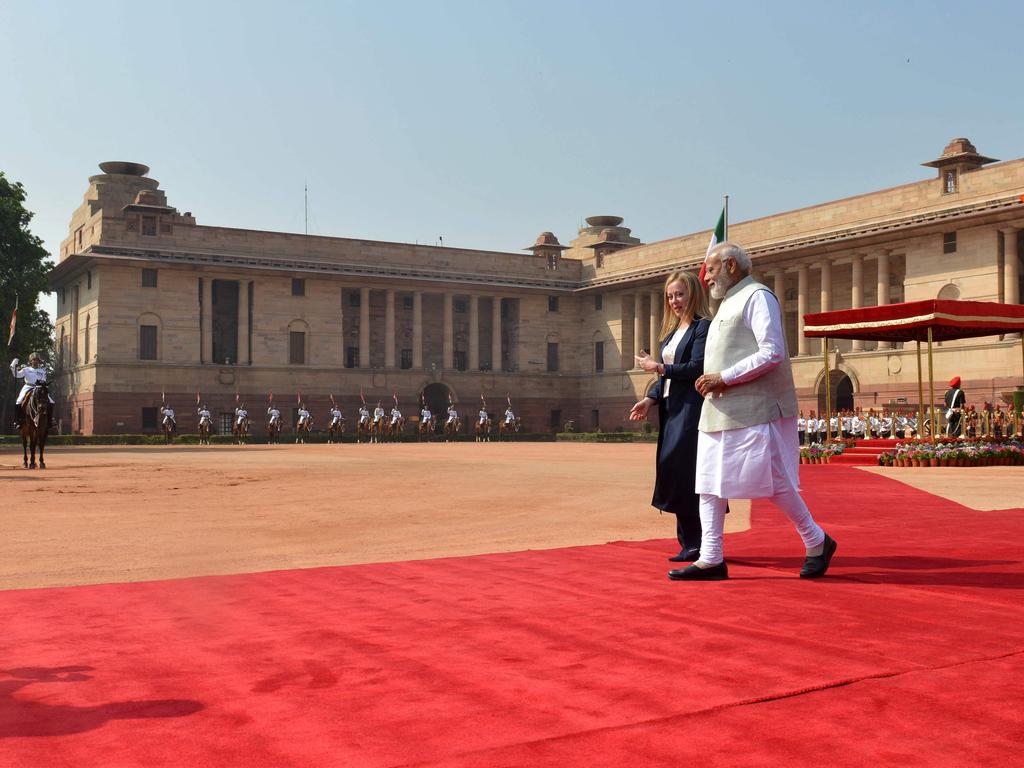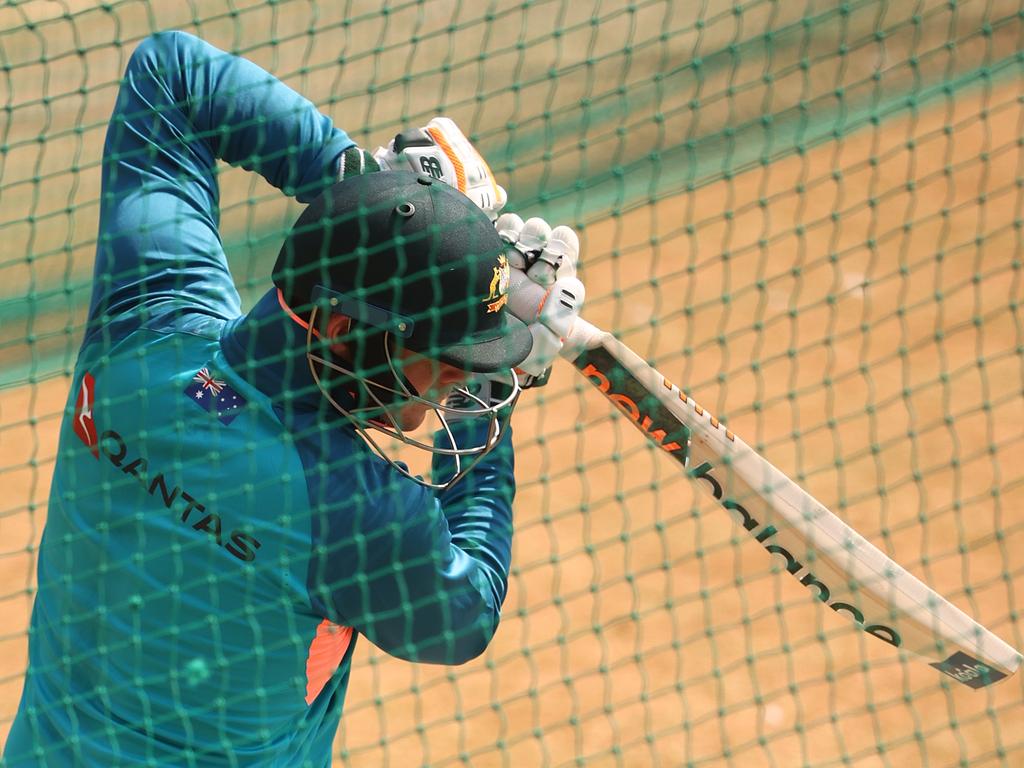Higher education, security high on Anthony Albanese’s India agenda
Anthony Albanese will be joined by university and business leaders on a key trip aimed at strengthening the economic and security relationship.

Anthony Albanese will use his first day in India to deepen co-operation on higher education and participate in the Hindu festival of Holi as part of a key trip aimed at strengthening the economic and security relationship between India and Australia.
Arriving in Gujarat on Wednesday, the Prime Minister will attend a Holi festival – marking the arrival of spring and triumph of good over evil – and have colourful powders placed on his face by the Governor, Acharya Devvrat, and Chief Minister, Bhupendrabhai Patel.
He will then attend a key event to showcase growing co-operation between Australia and India on higher education, with Deakin Vice-Chancellor Iain Martin, University of Melbourne Vice-Chancellor Duncan Maskell and Universities Australia chief executive Catriona Jackson also set to attend.
Deakin University will use the opportunity to formally announce that it will become the first foreign university in the world to be approved to establish a branch campus in India, and is investing $4m in the initial establishment of the campus enabling 100 students to study cyber security and business analytics each year.
Mr Albanese will become the first Australian prime minister to visit Ahmedabad, the largest city in the state of Gujarat on the nation’s west coast, and told the parliament on Tuesday he first visited India in 1991 as a backpacker “catching buses, hitching rides, catching trains”.
He will use the trip to open up fresh opportunities for businesses, pursue new sources of growth for the Australian economy and advance the nation’s supply chain diversification agenda.
It will be the first visit by an Australian prime minister to India since 2017, with Mr Albanese set to meet Narendra Modi for the annual leaders’ summit in New Delhi where the pair will discuss trade and investment, renewable energy, defence and security co-operation as well as education and cultural ties.
“India is Australia’s sixth largest trading partner but there is so much potential for so much more, creating Australian jobs, helping our industries prosper, sparking growth and innovation,” Mr Albanese told parliament on Tuesday.
“Renewable energy will be a focus of this visit. India’s ambitious goals of 50 per cent renewables and 30 per cent electric vehicles by 2030 provide an opening for Australian manufacturing and resources.
“Our relationship with India is vital from a security perspective as well. Our defence links are growing, Australia will host Exercise Malabar for the first time this year.
“We will welcome Prime Minister (Narendra) Modi to Australia for the Quad leaders meeting in the first half of this year, joining with the leaders of Japan and United States in promoting a free, fair and rules based order and a stable and balanced region.”
Mr Albanese said that India and Australia shared a “rich friendship underpinned by shared democratic values, bonds between our people and an affectionate but fierce sporting rivalry which will be resumed later this week”.
“What we need to do is to make sure that we develop the relationship and indeed one of the first things that I did as prime minister was go to the Quad leaders’ meeting in Tokyo and meet with Prime Minister Modi, and I look forward to later this week meeting with Prime Minister Modi for the third time.”
Mr Albanese will be accompanied by Trade Minister Don Farrell and Resources Minister Madeleine King who will lead a major delegation of more than 25 business leaders.
Some of those taking part include Qantas chief executive Alan Joyce, Business Council of Australia chief executive Jennifer Westacott, Wesfarmers chief executive Rob Scott, ANZ chief executive Shayne Elliott and CBA boss Matt Comyn.
The delegation will participate in the Australia-India CEO forum in Mumbai to discuss opportunities created by the recent Australia-India trade agreement and future areas of collaboration.
Former Department of Foreign Affairs and Trade secretary Peter Varghese told The Australian the visit was well timed, “because I can’t think of a time when Australia in your relationship was as strong as it is now”.
“I think what we’re seeing in the relationship now is that India itself is taking Australia much more seriously. It sees Australia as a partner that is important to it across geopolitics as well economics. That’s quite a shift in the relationship, in my experience.”
He said Australia had always recognised the importance of the relationship and the potential for it to be much stronger, “and now I think we’re on the same page”.
Mr Varghese, who authored Australia’s India Economic Strategy to 2035, said the seniority of the Australian business delegation heading to India with the Prime Minister showed top CEOs took India’s new growth story seriously.
He said India was “not going to be the next China”, but the slowing of globalisation and the search for alternative supply chains were “running in India’s favour”.
Mr Varghese said the Quad nation’s strategic relationship with Russia did not undermine its relationship with the West as long as its partners realised India “is not going to be anyone’s ally”.
Additional reporting: Ben Packham







To join the conversation, please log in. Don't have an account? Register
Join the conversation, you are commenting as Logout